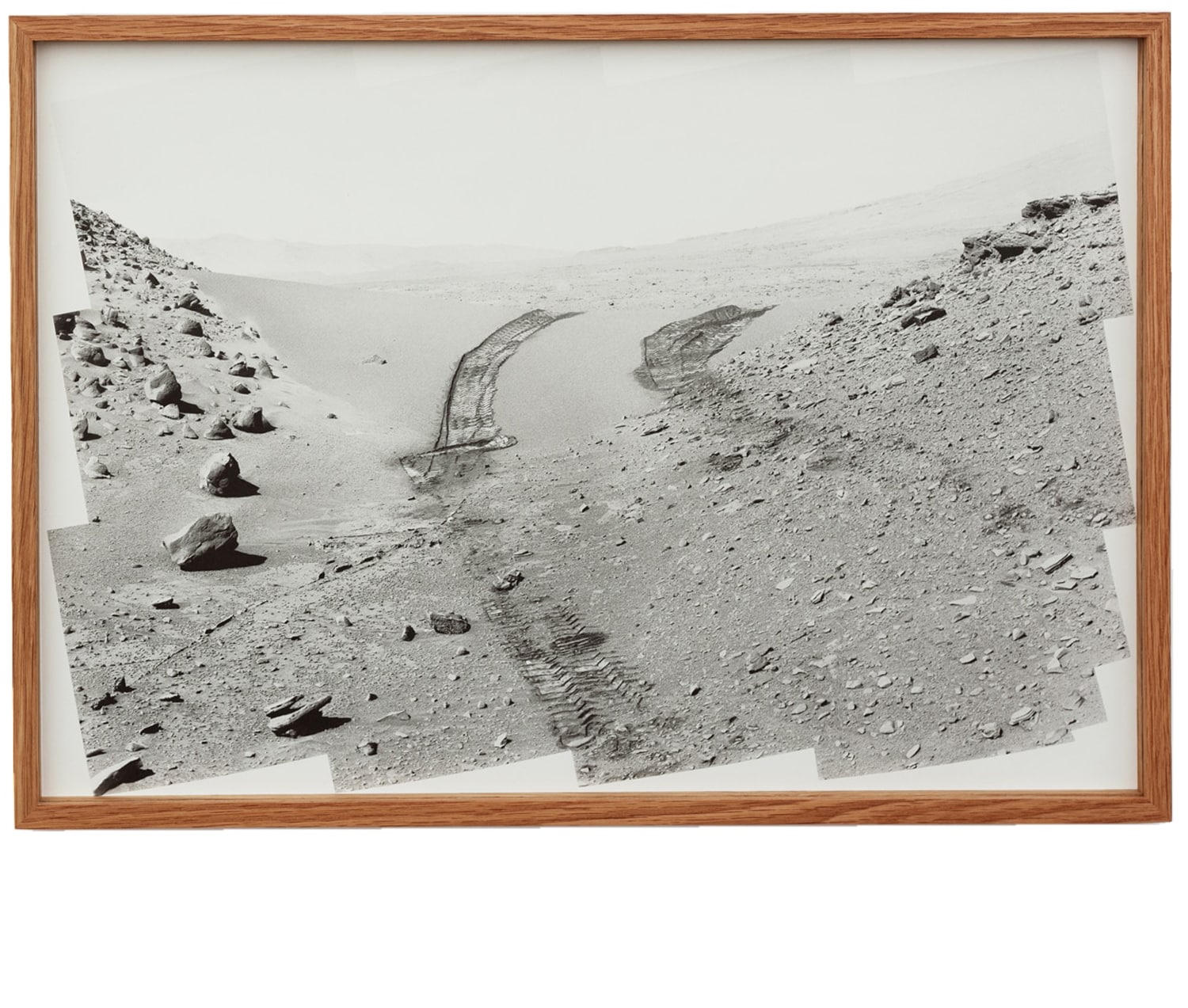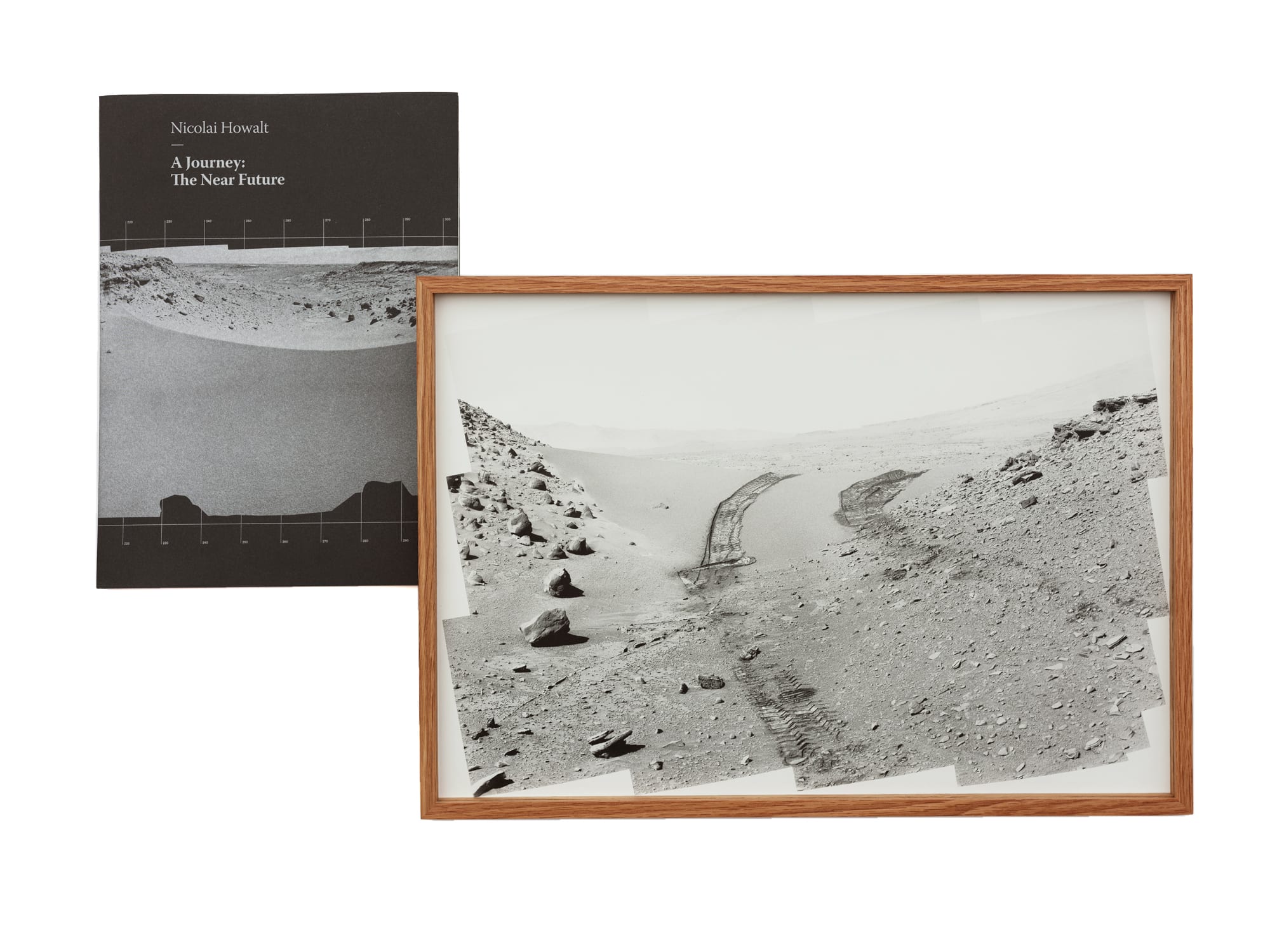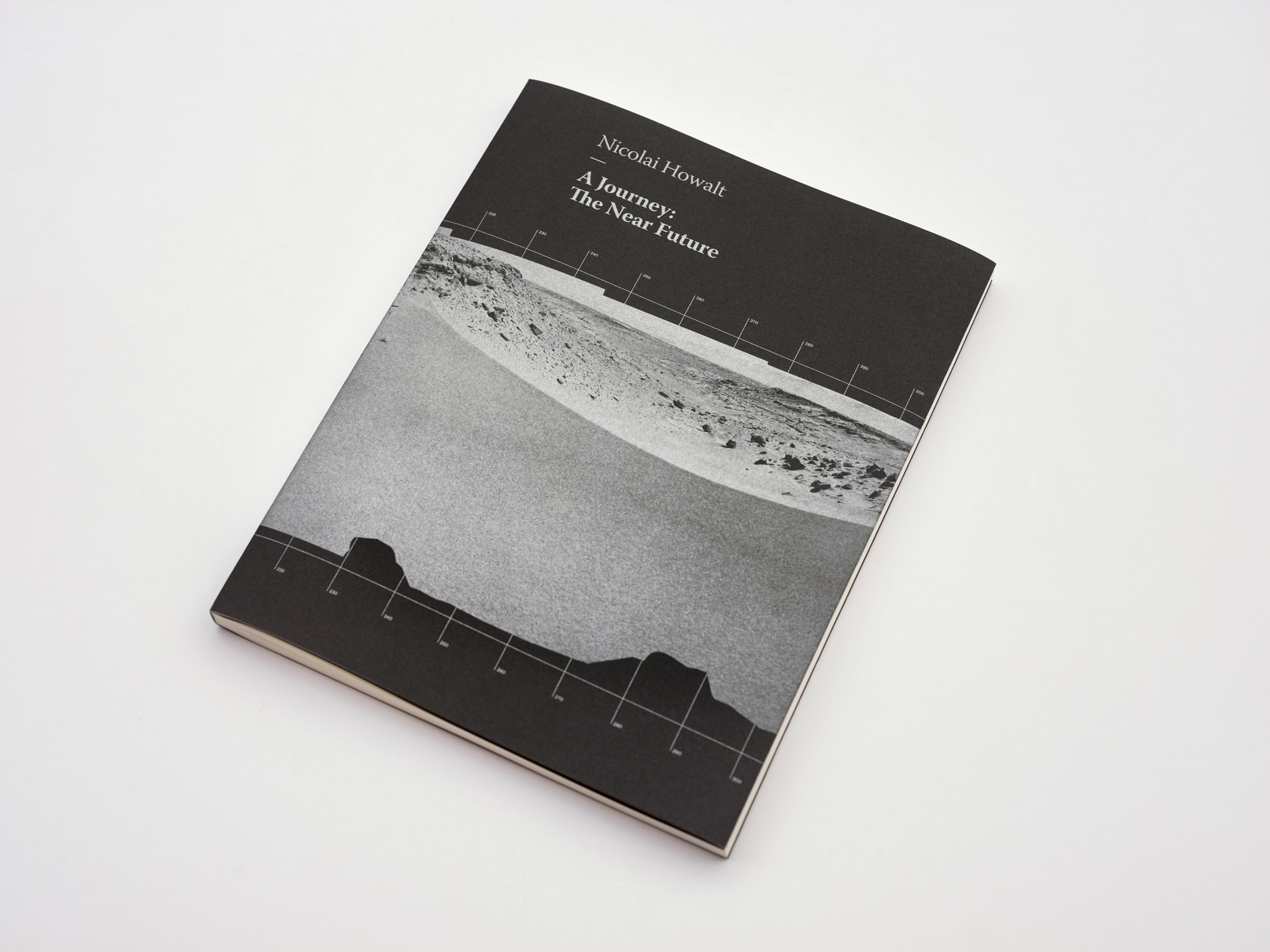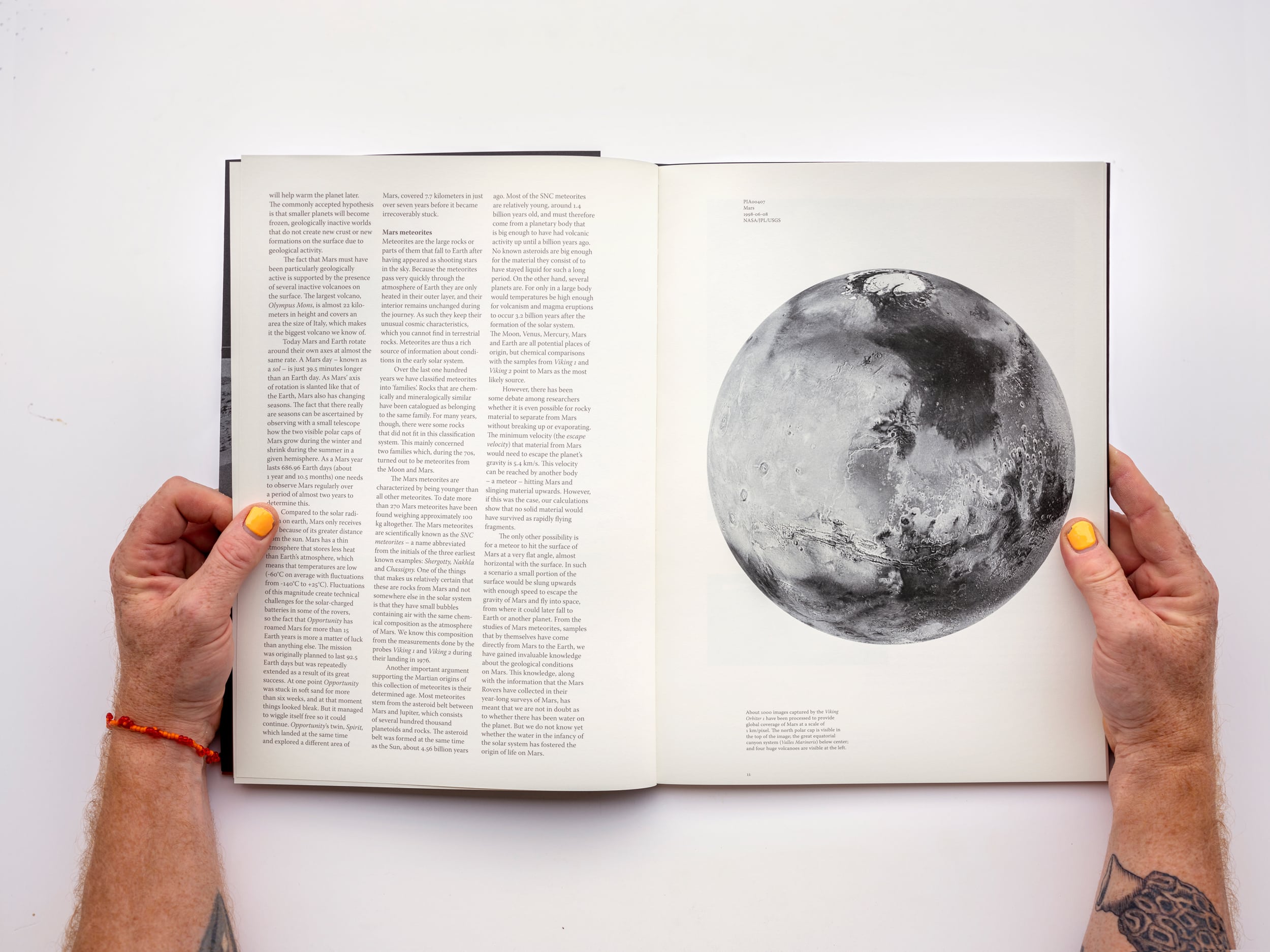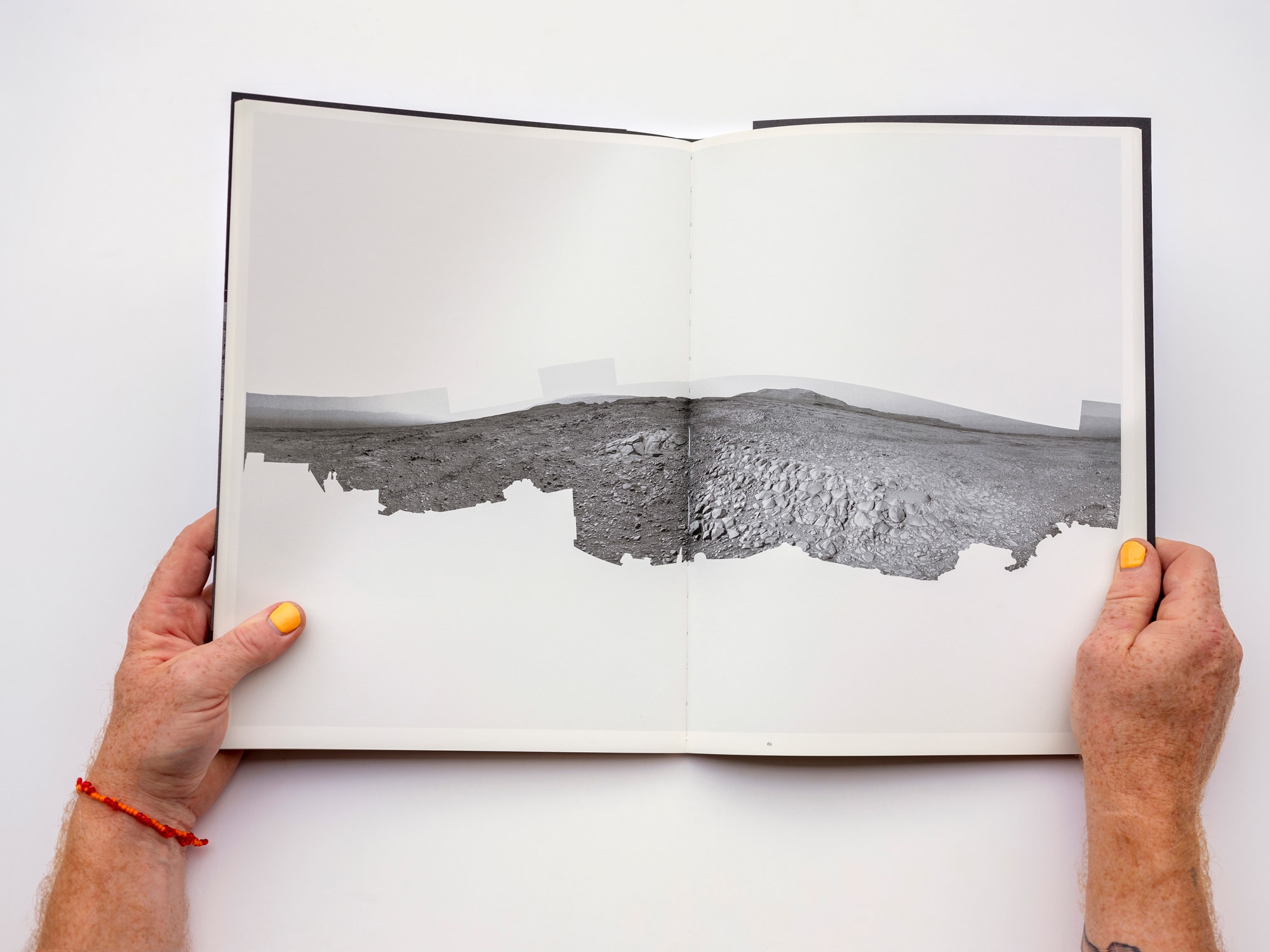kr.7.500,00
Dingo Gap & A Journey: The Near Future
Nicolai Howalt
Photographic quadtone print (two blacks, grey, silver)
In oiled solid oak frame with uv70 glass
size: 34×50 cm
signed & numbered / edition of 20
Book: A Journey: The Near Future
published by: Fabrikbooks
year: 2022
designed by: Rasmus Koch Studio
format: 34 x 26 cm
no. of pages: 80
no. of illustrations: 30
texts by: Author, Harald Voetmann; Professor Anja C. Andersen, Ph.d.) Astrophysics – Niels Bohr Institute; associate professor Morten Bo Madsen, Lic. Techn. (Ph.d.) in Applied Physics – Niels Bohr Institute
quadtone print (two blacks, grey, silver)
paper: Munken Pure 200 g/m2 / Materica Terra Rossa 120 g/m2
dustcover: 185 g/m2 Sirio Color Ultra Black. Silver print
ISBN: 978-87-998207-9-5
price: €1000
Signed and numbered photographic quadtone print in an edition of 20 from Nicolai Howalt’s A Journey: The Near Future. The original print by Howalt is specially framed in a solid oak frame (oiled) with uv70 glass.
The print comes with the book A Journey: The Near Future by Howalt.
In A Journey: The Near Future, artist Nicolai Howalt depicts our yet-to-be-explored red neighbor, nearly 63 million kilometers away.
In a time of great technological leaps and climatic upheavals, Mars represents the next steppingstone for humanity’s expansion into space. Howalt’s work takes its starting point in the photographic panoramas captured on the surface of Mars by the NASA-rovers Curiosity, Perseverance, Spirit and Opportunity. These digital images have allowed us to view the Martian landscape in an unusually detailed, colorful and sharp resolution, but paradoxically the same digital precision makes the images almost unapproachable and unreal. We see through the lifeless eye of a robot.
In A Journey: The Near Future, Nicolai Howalt adds an element of recognizability and human presence to the extraterrestrial landscapes by converting the digital files into photographic negatives, which have subsequently been developed as black and white silver gelatin prints in the darkroom. By transforming the images from digital information to physical photographs created with light, chemistry and human hands, the images open to a sensitive gaze that is not only aimed at scientific data collection, but also at existential and historically conscious reflections.
Mars is the planet in our solar system that most resembles Earth, and billions of years ago the similarity was even greater than today. At a time when the future of the planet is paramount, Mars is particularly interesting, as the planet can not only teach us about the universe’s past and the origin of life, but also about our future and what we (might) have in store.
Historically, black and white photography has been linked to the presence of a photographer, and thus Howalt induces the extraterrestrial landscapes with a sense of human presence that brings us into a paradoxical closeness with a landscape, where no human has yet been. In their transformation from pixels to silver halides the panoramas become images not brought into vision by the remote eyes of a robot, but by human hands and sensibility.
A Journey: The Near Future contains 30 photographic works as well as text contributions from Professor, astronomer and astrophysicist Anja C. Andersen; physicist and associate professor at the Niels Bohr Institute Morten Bo Madsen and the award-winning Danish author Harald Voetmann, who in their own way shed light on the debated planet and its existential and scientific significance.

